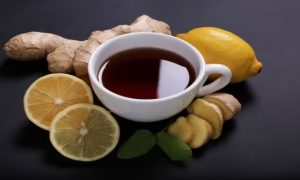On the occasion of World Lung Day, Ayurveda expert Dr Archana Sukumaran, suggests some Ayurvedic and Yoga tips that one can incorporate into their daily life to improve respiratory health.
World Lung Day 2022: Our lungs are one of the most crucial organs and helps in elimination of harmful carbon dioxide and other pollutants from the body while aiding oxygen supply to all other organs of our body. Covid-19, rising air pollution and exposure to other toxic chemicals are some of the external factors that could impact our lung health adversely. According to Ayurveda, lung is the reservoir of Prana Vaha Srotas, or channel of breathing. The Vata and Kapha entities are responsible for the adequate functioning of the Prana channels. For this very reason, it is essential to maintain both entities together without enabling a surge in either of them for optimal respiratory functions.
On the occasion of World Lung Day (September 25, 2022) Dr Archana Sukumaran, Ayurveda doctor (BAMS) at Kerala Ayurveda, suggests some Ayurvedic and Yoga tips that one can incorporate into their daily life to improve respiratory health.
Yoga and Ayurveda tips to improve lung health
Here are a few Ayurvedic tips you can incorporate into your daily life to uplift your respiratory well-being.
TIPS FOR LUNG HEALTH
“A faulty diet and regimen could lead to dosha imbalance and respiratory disturbances. So, proper diet and regimen are necessary for attaining respiratory wellness,” says Dr Archana.
Here are a few tips by Dr Archana according to the classics of Ayurveda and Yoga for attaining optimal lung health.
DIETARY TIPS
Ahara, the food you consume, is a crucial aspect for maintaining lung health, says Dr Archana.
● Satmya Bhojana: Consuming a proper diet at the proper time keeping in mind quantity of food as it impacts functionality of your Agni or metabolism and is an essential indicator for lung health. According to Ayurveda, the Udana Vata that controls adequate respiration originates from Amashaya or the gut. So having proper food aids in better lung well-being.
● Diet not influenced by any predominant taste: A diet that is not overly Katu (Pungent) and Madhura (Sweet) has to be consumed, for these qualities bring about a surge in Vata and Kapha doshas.
● Control your unctuousness factor: While consuming food, it is crucial to keep a check on reducing the unctuous factor in the diet. Foods that are neither too dry nor too oily are preferred for lung health.
● Eating in a clean environment: An environment that is free from dust and smoke while having food is equally important.
TIPS FOR A HEALTHY ROUTINE FOR LUNG HEALTH
Dr Archana says Vihara, or daily regimen, is equally important in maintaining the body’s equilibrium.
Pranayama: The breathing techniques mentioned in yoga, including the various pranayama methods, are great options to purify the channels of the respiratory system and clear Prana Vaha Srotas.
Nasya: The nose is also the entry point of the vital breath or Prana Vayu, which is crucial in maintaining lung health. According to Ayurveda, the instillation of herbal oils or Nasya is one of the most crucial holistic self-care practices that encourages healthy Prana flow and internal detoxification. Nasya helps to lubricate the nasal passages and clean out excess mucus from the sinuses. Anu Thailam, an ancient Nasya oil, is made with Kapha balancing herbs that help clear the accumulated doshas to breathe better.
Dhumapana: In Dinacharya, Acharyas mention the need for Dhumapana as medical fumigation or medicine-infused inhaler to clear the pathway from pathogenic innervation.
Control over exercise: While exercise is essential, overdoing it – mostly heavy cardio workouts, can trigger Vata abnormalities and thus a deranged respiratory system.
Control on the exposure to air conditioners: Air conditions clean and purify the air, but continuous exposure without proper ventilation can trigger Vata and Kapha abnormalities and other lung maladies.
HERBS FOR LUNG HEALTH
Dr Archana suggests few herbs that enhance the functioning of the respiratory system.
Vasa: Adhatoda vasica is identified as the supreme medication for all complaints associated with the lung. It is consumed as a decoction with honey or as a delicious, fermented herbal preparation- Vasarishta.
Shunthi: Zingiber officinale, the dry ginger, is an excellent kitchen source that, when incorporated into your diet as ginger-infused tea is effective in maintaining the respiratory system.
Dasamoola: Dasamoola combines ten Vata balancing herbs- Agnimantha, Bilwa, Bruhati, Gokshura, Kantakari, Kashmari, Patala, Prushniparni, Shaliparni, and Shyonaka. It reduces inflammation and improves lung health. Agasthyarasayanam is a potent herbal jam preparation with dasamoola and other herbs in a delicious jaggery base to improve respiratory health.
Haridra: The golden spice turmeric, Curcuma longa can be consumed with honey to manage the levels of both Vata and Kapha. It also has antimicrobial action and helps to fight off disease-causing pathogens residing in the channels of respiration.
“Ayurveda strictly mentions the need to follow Dinacharya (Daily regime) and Ritucharya (Seasonal regimen) to maintain the system’s quality of life and wellbeing. Along with these principles and the tips mentioned above, you can attain perfectly optimal lung health amidst the buzz and stress of this generation,” concludes Dr Archana.





































